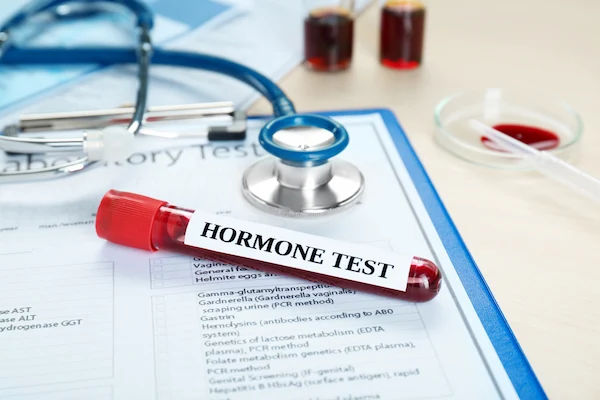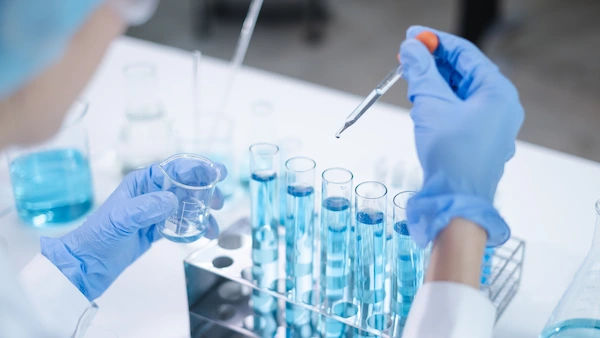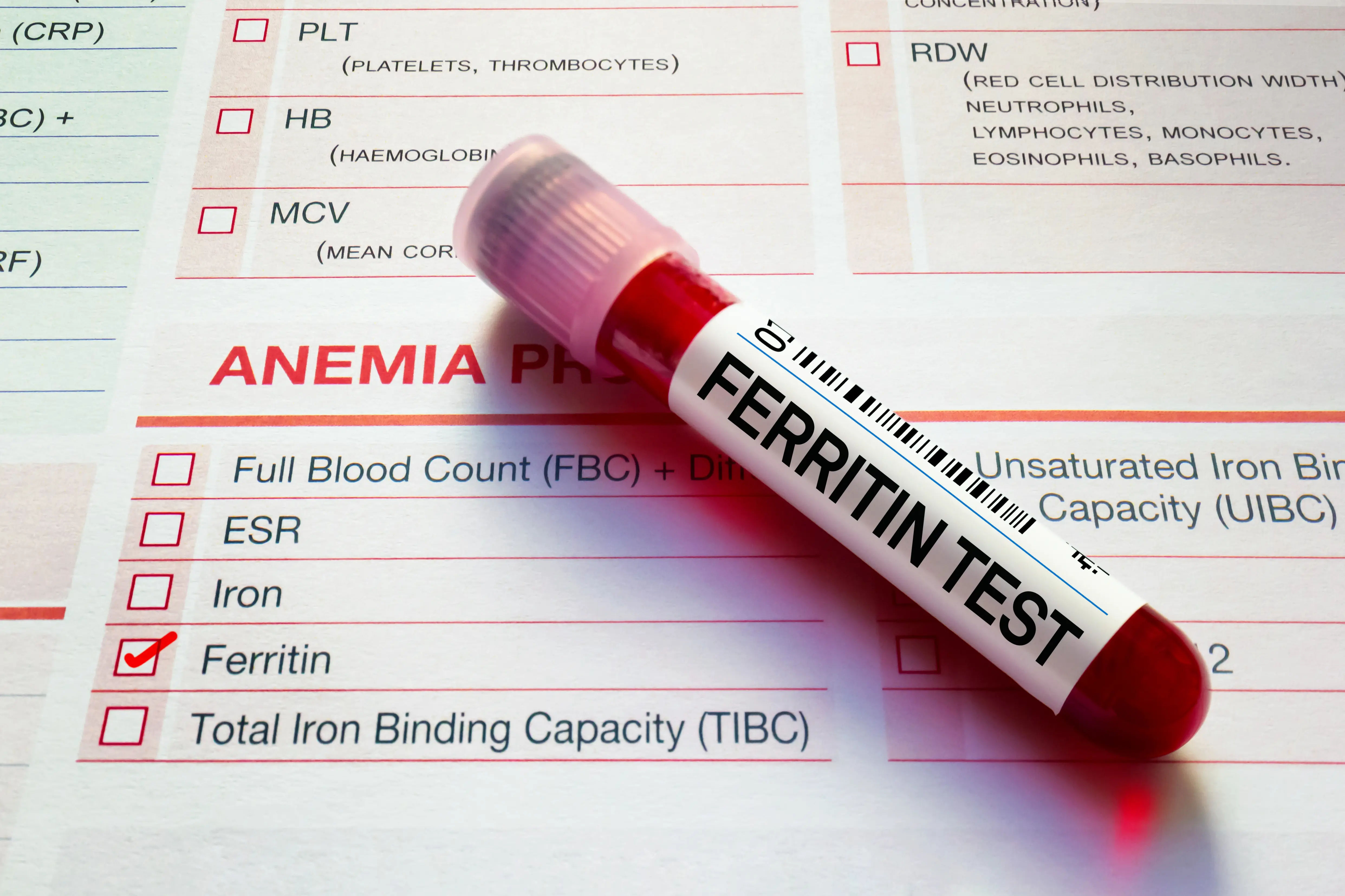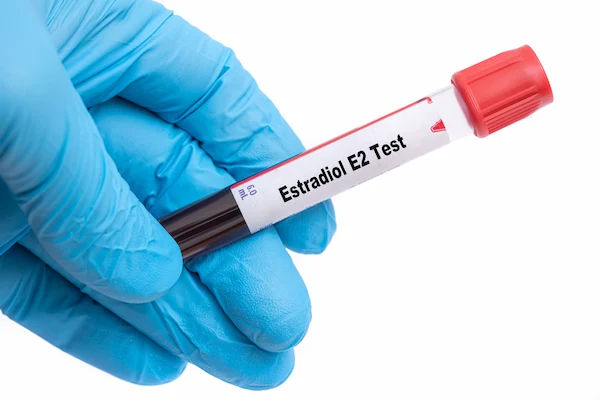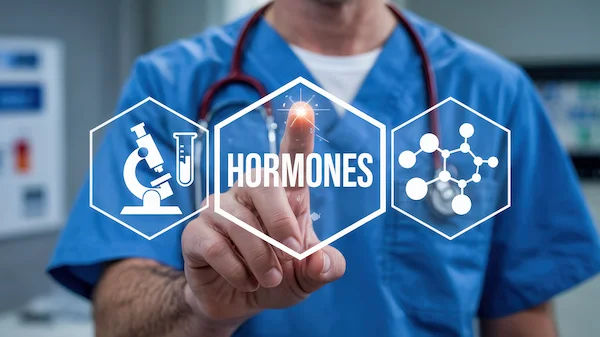Trying to Conceive After 35? Start With These 3 Essential Tests
Know details on conceiving after 35, and undergo AMH, FSH & TSH tests. Learn about the tests and when to do retests.

Written by
Last updated on 5th Aug, 2025

Embarking on the journey to parenthood is an exciting and deeply personal experience. For many women, this journey begins or continues after the age of 35. Getting pregnant later in life has its benefits, like being more financially stable and emotionally ready.
But it can also bring some challenges, especially when it comes to fertility. That’s why it’s important to understand your reproductive health. Special fertility tests can give you clear answers and help you make informed choices.
How Age Impacts Fertility Markers
It is a well-established biological fact that female fertility naturally declines with age. While this is a gradual process, the decline accelerates significantly after the age of 35. This is primarily due to two key factors: a decrease in the quantity of eggs (ovarian reserve) and a reduction in the quality of the remaining eggs.
Women are born with a finite number of eggs, and this reserve diminishes steadily throughout their reproductive years. As you age, not only do the numbers drop, but the quality of these eggs can also be affected. Older eggs are more prone to chromosomal abnormalities, which can lead to a higher risk of miscarriage or genetic conditions in the baby.
Beyond egg quantity and quality, advancing age can also influence other physiological aspects relevant to conception. Hormonal balances can shift, and underlying health conditions, which may have been asymptomatic earlier, can become more pronounced, potentially impacting fertility. This is precisely why a proactive and informed approach to diagnostic testing is so vital for women over 35 who are trying to conceive. These tests provide a clear picture of your current fertility status, allowing healthcare professionals to offer tailored advice and interventions if necessary.
Must-Do Tests: AMH, FSH, and TSH
When you are over 35 and trying to conceive, your doctor will likely recommend a specific set of diagnostic tests to assess your ovarian reserve and overall hormonal health. These three tests are considered fundamental: Anti-Müllerian Hormone (AMH), Follicle-Stimulating Hormone (FSH), and Thyroid-Stimulating Hormone (TSH).
Anti-Müllerian Hormone (AMH) Test
The AMH test is a highly valuable indicator of your ovarian reserve – essentially, the number of eggs remaining in your ovaries. AMH is produced by the granulosa cells in your ovarian follicles, and its levels generally reflect the number of antral follicles available. Unlike some other fertility hormones, AMH levels remain relatively stable throughout your menstrual cycle, meaning the test can be performed at any time.
A higher AMH level generally suggests a larger ovarian reserve, while lower levels may indicate diminished ovarian reserve, which is a natural consequence of ageing. However, it is important to remember that AMH is just one piece of the puzzle. It indicates quantity, not necessarily quality. Nevertheless, it provides crucial insight into your reproductive potential and helps in predicting your response to fertility treatments if they become necessary.
Book an Anti-Müllerian Hormone (AMH) Test
Follicle-stimulating hormone (FSH) Test
The FSH test checks the level of a hormone called Follicle-Stimulating Hormone in your blood. This hormone is made by a gland in your brain and helps your ovaries grow and mature eggs for ovulation. The test is usually done on the 2nd or 3rd day of your period because hormone levels can change throughout your cycle.
If your FSH level is high at this early stage, it may mean your ovaries are struggling to produce eggs, which could be a sign of lower egg count (also called reduced ovarian reserve). On the other hand, lower FSH levels often suggest better ovarian health, especially when looked at along with other test results. When combined with the AMH test, the FSH test gives a clearer picture of how well your ovaries are working.
Book a Follicle-Stimulating Hormone (FSH) Test
Thyroid-Stimulating Hormone (TSH) Test
While not directly a "fertility hormone," Thyroid-Stimulating Hormone (TSH) plays a surprisingly significant role in reproductive health. TSH levels indicate the functioning of your thyroid gland, which produces hormones essential for metabolism and overall well-being. An imbalance in thyroid hormones, whether an underactive thyroid (hypothyroidism) or an overactive thyroid (hyperthyroidism), can interfere with ovulation, menstrual regularity, and even the successful implantation of an embryo.
Hypothyroidism, in particular, is a common condition that can affect fertility and increase the risk of miscarriage if left unmanaged. Ensuring your thyroid is functioning optimally is a crucial step in preparing your body for a healthy pregnancy. A simple blood test for TSH can identify any underlying thyroid issues that may need addressing.
Book a Thyroid-Stimulating Hormone (TSH) Test
When to Test and When to Retest
The timing of fertility tests is important to get accurate results. For women over 35, doctors usually recommend getting tested if you've been trying to get pregnant for six months without success. This is a shorter waiting period compared to younger women, who are often advised to try for a year before testing. That’s because fertility can decline more quickly after age 35, so it’s better to check things sooner rather than later.
- AMH: As mentioned, AMH can be tested at any point in your menstrual cycle. It is a reliable indicator of ovarian reserve and doesn't require specific timing.
- FSH: FSH is usually tested on day 2 or 3 of your menstrual cycle, as levels are typically at their baseline during this phase. This provides the most accurate reflection of ovarian function. Your doctor will guide you on the best timing.
- TSH: The TSH test does not typically require specific timing within your menstrual cycle. It can be done at any time of day, though some doctors may recommend morning testing as TSH levels can fluctuate throughout the day. No fasting is required for a TSH test.
When it comes to retesting, it depends on your circumstances and the advice of your healthcare provider. If your initial results show abnormalities, your doctor may recommend retesting after a period of time or after initiating any treatment to monitor changes. For women actively trying to conceive, these tests may be part of an ongoing fertility assessment, especially if you are undergoing treatments. It is important to have an open discussion with your doctor about the frequency of testing based on your specific situation.
Club Tests for a Full Fertility Evaluation
While AMH, FSH, and TSH are foundational, a comprehensive fertility evaluation often involves a broader panel of tests to gain a complete understanding of your reproductive health. These may include other hormone checks, imaging, and tests to rule out other conditions that could impact conception.
Apollo 24|7 offers several packages that can provide a more holistic assessment, going beyond the individual tests. These integrated panels are designed to give you a comprehensive overview, often at a more convenient and cost-effective rate.
- Apollo Fertility Profile - Female: This package includes AMH along with six other tests, offering a broader look at female reproductive hormones. This can be an excellent starting point for a comprehensive fertility evaluation.
Book an Apollo Fertility Profile - Female
- Apollo PCOD Advanced: While primarily for Polycystic Ovarian Disease (PCOD), this comprehensive panel includes several hormones relevant to fertility, such as TSH, Testosterone, LH, FSH, and Prolactin. PCOD can significantly impact fertility, and this package offers a thorough investigation if PCOS/PCOD is suspected.
- Apollo Women's Health - Advance: This comprehensive health check-up package for women includes TSH, alongside numerous other vital tests covering blood studies, liver, kidney, and vitamin levels. While not solely focused on fertility, it provides a crucial baseline for your overall health, which is intrinsically linked to reproductive well-being.
Book an Apollo Women's Health - Advance
Book 35+ Fertility Tests at Apollo 24|7
Here’s why Apollo 24|7 is a great choice for your fertility tests:
- Easy Online Booking: You can book your tests quickly through their website or app; no need to visit a clinic just to schedule.
- Home Sample Collection: A trained professional will come to your home to collect the sample, giving you comfort and privacy.
- Quick and Accurate Reports: Get reliable test results fast, usually within 6 to 24 hours for tests like TSH and AMH, so you can take the next steps without delay.
- Trusted Quality: Apollo Hospitals is a well-known and respected name. Their labs are accredited and use the latest technology to ensure accuracy.
- Wide Range of Tests: You’ll find a full selection of women’s health and fertility test packages, all in one place.
- Clear Pricing: Prices are listed clearly, so you’ll know exactly what you’re paying—no hidden charges.
Conclusion
If you’re over 35 and trying to get pregnant, it’s important to understand your fertility health. As age can affect egg count and quality, tests like AMH, FSH, and TSH can give your doctor important information about your hormones and how your ovaries are working. These insights help you make the right choices, whether it’s changing your lifestyle, exploring fertility treatments, or simply knowing what to expect.
Every woman’s journey is different. Taking these tests early can increase your chances of a healthy pregnancy. Apollo 24/7 makes the process simple and convenient. Just be sure to talk to your doctor for personalised advice.
